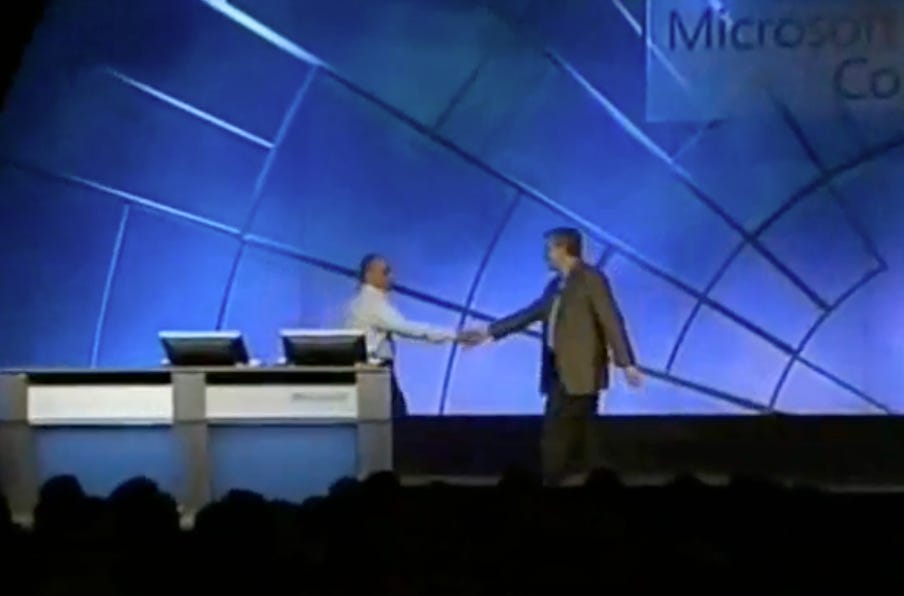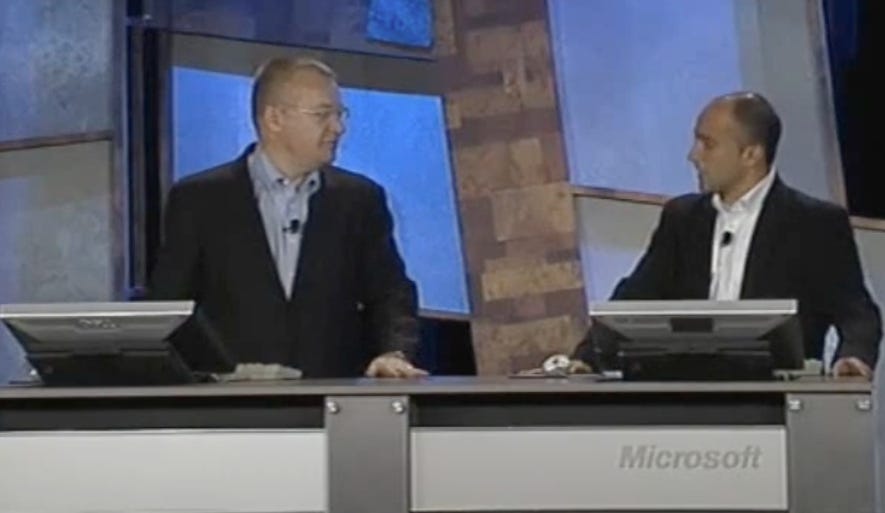“Source Code”: What Bill Gates Taught Me About Leadership, Focus, and Learning Fast
My encounter with Gates shaped my early tech career. His memoir just reminded me why he still inspires me today.
If you’re new to this blog, welcome! I hope you’ll enjoy it enough to consider subscribing and sharing it.
This review is the first of my “Book of the Week” — a series featuring the books that have most shaped how I work. Not reviews. Takeaways.
I explore 1) what the book taught me (in plain English), 2) why it matters and 3) how to use it immediately.
If this resonates with you, I hope you’ll consider subscribing. It’s free!
I just finished listening to the Source Code audiobook during a drive up to Seattle—symbolic for me. I spent seven years in that city working at Microsoft, and crossed paths with Bill Gates a few times.
My first encounter with ‘Bill G,’ as we called him, was nerve-wracking: I demoed one of our data analytics products, Business Scorecard Manager. He was patient, listened intently, and gave me thoughtful feedback.
That exchange later gave me the confidence to step onto stages with then-Microsoft Presidents, Jeff Raikes and Stephen Elop a few times. (I know, I look pretty young on these! BTW, link to the videos are embedded in the photos below).
Gates has always stood out to me—not just for what he built, but for how he’s used what he built.
He’s one of the few billionaires who genuinely inspires me—not just by how he’s decided to use his fortune, but by how he applies his intellect to solve hard problems.
What Is This Book About?
Source Code is the first of three memoirs Gates plans to publish, covering the arc of his life. This volume focuses on the early years: from childhood, his first interactions with a computer, Harvard, and founding Microsoft with Paul Allen. It's a remarkable story filled with chance encounters, intense curiosity, and a relentless desire to master complexity.
One story in particular stayed with me: Gates’s grandmother, Gami, was unbeatable at card games. Young Bill thought it was magic—until she revealed her secret: she tracked every move and spotted patterns. That realization flipped a switch. Strategy, not luck, wins. And if she could do it, so could he. That mindset—that anything can be figured out—became his operating system.
I also had a close relationship with my grandmothers and they each taught me skills that have stayed with me, from thinking outside the box, to working hard and telling stories.
He was obsessive early on. From reading books cover to cover, to dumpster diving for discarded PDP-10 printouts at Computer Center Corp, to writing his first recipe program as a teen, Gates chased understanding like oxygen. He turned every loss into feedback, every failure into fuel. The long Seattle winters and endless programming hours forged his technical fluency.
Eventually, he and Paul Allen would build BASIC for the Altair 8800, demo it successfully, and land their first licensing deal. That moment led to Microsoft. And as this first memoir shows, Gates’s real genius wasn’t just intelligence. It was pattern recognition, paired with deep focus, feedback loops, and a fierce sense of purpose.
Gates’s real genius wasn’t just intelligence. It was pattern recognition, paired with deep focus, feedback loops, and a fierce sense of purpose.
Let me be honest: I wish Gates had narrated the entire audiobook. When he does speak, his voice adds so much. Calm, curious, and clear. You feel the gears turning. That voice matters. If you want more of it, watch the Netflix series Inside Bill’s Brain. It complements the book well.
But this blog isn’t a recap. It’s a set of personal takeaways—what I learned, why it stuck with me, and what you can use right now to improve your leadership in tech.
Let’s dive in!
1. Product Thinking is a Mindset
Gates attacks global issues—like eradicating disease or reinventing toilets—with the same rigor a startup founder would use to debug code. He builds models, runs pilots, measures impact.
Why Does That Matter? You don’t need to be in tech to think like an engineer. Curiosity plus iteration scales in any domain.
2. Admit what you don’t know
Here’s something rare: a public figure who freely says “I don’t know.” Gates does it often—and then brings in experts to close the gaps. That’s real confidence.
Why Does That Matter? Too many leaders try to fake omniscience. But, your team doesn’t need you to know everything. They need you to be open enough to learn. I wrote about this in “Nobody Cares About Your Leadership Style”.
3. Frame the problem first
From climate change to global education, Gates starts with better questions. The natural human tendency is to chase solutions before we’ve properly framed the issue.
Why Does That Matter? If we want to be better, we have to start with asking "Are we even solving the right problem?" More often than not, the answer is no.
Now What?! Here is One Thing You Can Do Today
At your next meeting:
Pose a real unsolved problem to your team—one that matters but has no clear path.
Frame it in terms of data, not opinion. Let it linger.
Don’t rush to solve. Instead, spark structured thinking.
You’ll build better leaders—and stronger solutions—by simply asking the right questions first.
Final Thoughts
We love to romanticize disruption. But Gates’s journey shows us that the real levers of impact come from patience, systems thinking, and humility. His transition from founder to global problem-solver isn’t just admirable—it’s instructive.
Source Code is more than a book. It’s a diagnostic on how a tech mind tackles world-scale problems. And while I wish it were narrated fully in Gates’s own voice, what you get is still worth the listen (or read). Combine it with the Netflix series and you’ve got a playbook for how to lead—quietly, thoughtfully, and with purpose.
What happened next? Well, that’s a story for Gates’s next memoir. And I, for one, will be listening.
I write about what I’ve learned as a technology executive over the last 25 years. I’ve done startups from inception and helped scale them. I’ve been acquired. I’ve acquired companies. I’ve worked at mid-size companies through IPO. I helped scale Data, AI and Analytics businesses at Microsoft and Google.
The above are my thoughts. No one’s paying me to write this—not my employer, not anyone. You don’t have to agree. I welcome smart debates. I write this to learn from smart people, regardless of whether they agree with me or not.
Please feel free to comment, share your thoughts and even a book that’s had a strong impact on you.



